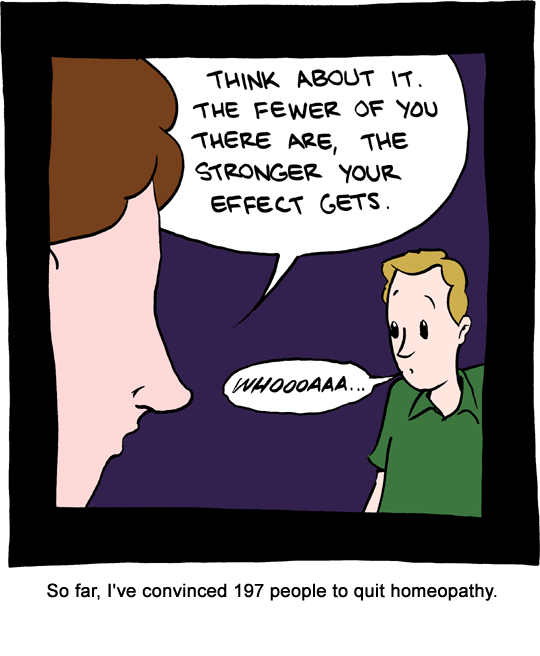While walking down the street on a date…
Random woman: …so I’ve been thinking about using something homeopathic to…
Me: *ears perk up* *gives Date the “Someone Just Said Something Very Stupid” look*
Date: *laughs* Down, girl.
Me: But…but… It’s like my superpower.
Date: Your spidey sense tingles whenever someone believes something stupid.
Me: I can’t help it!

 Come on Zach, you know this is wrong. The process of dilution is obviously very important in how the water molecules establish memory. It not just about decreasing the frequency of something. You must do the right water magi-er, mechanisms. Mechanisms. Or something.
Come on Zach, you know this is wrong. The process of dilution is obviously very important in how the water molecules establish memory. It not just about decreasing the frequency of something. You must do the right water magi-er, mechanisms. Mechanisms. Or something.